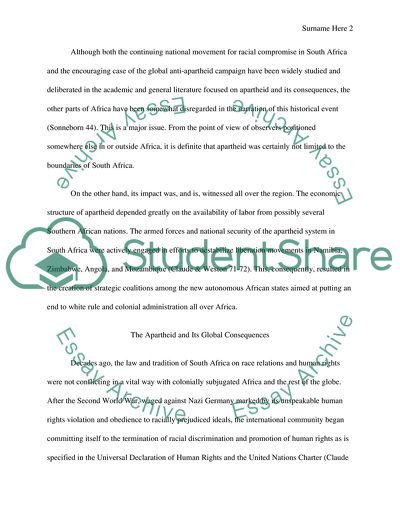Cite this document
(The Effect of Apartheid on the World Literature review Example | Topics and Well Written Essays - 2000 words, n.d.)
The Effect of Apartheid on the World Literature review Example | Topics and Well Written Essays - 2000 words. https://studentshare.org/politics/1812855-the-effect-of-aparthied-on-the-world
The Effect of Apartheid on the World Literature review Example | Topics and Well Written Essays - 2000 words. https://studentshare.org/politics/1812855-the-effect-of-aparthied-on-the-world
(The Effect of Apartheid on the World Literature Review Example | Topics and Well Written Essays - 2000 Words)
The Effect of Apartheid on the World Literature Review Example | Topics and Well Written Essays - 2000 Words. https://studentshare.org/politics/1812855-the-effect-of-aparthied-on-the-world.
The Effect of Apartheid on the World Literature Review Example | Topics and Well Written Essays - 2000 Words. https://studentshare.org/politics/1812855-the-effect-of-aparthied-on-the-world.
“The Effect of Apartheid on the World Literature Review Example | Topics and Well Written Essays - 2000 Words”. https://studentshare.org/politics/1812855-the-effect-of-aparthied-on-the-world.


